Millionaire Life was a national promotional lottery game that offered a top prize of $1 million a year for 25 years, four prizes of $1 million and 20 prizes of $100,000. It has been run four times across Canada between 2007 and 2011.
Millionaire Life was a national promotional lottery game that offered a top prize of $1 million a year for 25 years, four prizes of $1 million and 20 prizes of $100,000. It has been run four times across Canada between 2007 and 2011.
The Millionaire Life promotional lottery game is administered by the Interprovincial Lottery Corporation, an alliance of the five regional (some provincial) lottery corporations that cover all of Canada.
The winning ticket was purchased by Jagtesh and Gurinder Grewal, both of Winnipeg, Manitoba. [1] They split the lump sum payment of $17 million instead of the annuity of $1 million a year for 25 years because there was more than one person claiming the prize. [2]
The winning ticket was purchased by a Burnaby, British Columbia woman, Angela Towle. She opted for the lump sum of $17 million. [3]
The winning ticket was purchased by Faye Lepage of Edmonton, Alberta. She opted for the lump sum of $17 million.
Millionaire Life ran from March 1 to 31, 2011, with the draw happening the night of March 31. [4] The winning ticket was purchased in Quebec. [5]
Millionaire Life did not run in 2012. Ending the Millionaire Life lottery being replaced by the Daily Grand. [6]

A lottery is a form of gambling that involves the drawing of numbers at random for a prize. Some governments outlaw lotteries, while others endorse it to the extent of organizing a national or state lottery. It is common to find some degree of regulation of lottery by governments. The most common regulation is prohibition of sale to minors, and vendors must be licensed to sell lottery tickets. Although lotteries were common in the United States and some other countries during the 19th century, by the beginning of the 20th century, most forms of gambling, including lotteries and sweepstakes, were illegal in the U.S. and most of Europe as well as many other countries. This remained so until well after World War II. In the 1960s, casinos and lotteries began to re-appear throughout the world as a means for governments to raise revenue without raising taxes.
Powerball is an American lottery game offered by 45 states, the District of Columbia, Puerto Rico and the U.S. Virgin Islands. It is overseen by the Multi-State Lottery Association (MUSL), which also manages other large jackpot games such as the Mega Millions. Drawings are held three times weekly on Mondays, Wednesdays, and Saturdays at 10:59 p.m. Eastern Time, at the Florida Lottery's headquarters in Tallahassee.

The Georgia Lottery Corporation, known as the Georgia Lottery, is overseen by the government of Georgia, United States. Headquartered in Atlanta, the lottery takes in over US$1 billion yearly. By law, half of the money goes to prizes, one-third to education, and the remainder to operating and marketing the lottery. The education money funds the HOPE Scholarship, and has become a successful model for other lotteries, including the South Carolina Education Lottery.
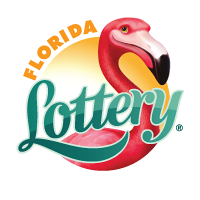
The Florida Lottery is the government-operated lottery of the U.S. state of Florida. As of 2022, the lottery offers eleven terminal-generated games: Cash4Life, Mega Millions, Powerball, Florida Lotto, Pick 2, Pick 3, Pick 4, Pick 5, Fantasy 5, Cash Pop, and Jackpot Triple Play. A player must be 18 or older to play.

Ontario Lottery and Gaming Corporation, known for corporate branding purposes simply as OLG since 2006, is a Crown corporation owned by the Government of Ontario, Canada. It is responsible for the province's lotteries, charity and Aboriginal casinos, commercial casinos, and slot machines at horse-racing tracks. It was created in April 2000 when the Ontario Lottery Corporation (OLC) was merged with the Ontario Casino Corporation (OCC), established in 1994. Prior to 2006, the combined entity was known in short form as the OLGC. OLG employs over 8,000 individuals throughout Ontario; 1,400 in Sault Ste Marie and the GTA offices. There are approximately 9,800 retailers operating more than 10,000 lottery terminals across the province.

The Pennsylvania Lottery is operated by the Commonwealth of Pennsylvania. The Lottery was created by the Pennsylvania General Assembly on August 26, 1971; two months later, Henry Kaplan was appointed as its first executive director. The Pennsylvania Lottery sold its first tickets on March 7, 1972 and drew its first numbers on March 15, 1972.

Lotto 6/49 is one of three national lottery games in Canada. Launched on June 12, 1982, Lotto 6/49 was the first nationwide Canadian lottery game to allow players to choose their own numbers. Previous national games, such as the Olympic Lottery, Loto Canada and Superloto used pre-printed numbers on tickets. Lotto 6/49 led to the gradual phase-out of that type of lottery game in Canada.
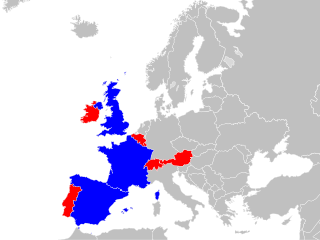
EuroMillions is a transnational lottery that requires seven correct numbers to win the jackpot, which consists of 5 main numbers and 2 Lucky Star Numbers. It was launched on 7 February 2004 by France's Française des Jeux, Spain's Loterías y Apuestas del Estado and the United Kingdom's Camelot. The first draw was held on 13 February 2004 in Paris. Initially, only the UK, France and Spain participated, with the Austrian, Belgian, Irish, Luxembourgish, Portuguese and Swiss lotteries joining for the 8 October 2004 draw.
Lotteries in Australia include various lottery related products licensed by The Lottery Corporation, The Lottery Office and Lotterywest Australian lottery companies. Lotteries operators are licensed at a state or territory level, and include both state government-owned, not-for-profit and private sector companies. Most major Lotteries have now moved into the online marketplace.

Lotto Super 7 was a national lottery game in Canada, operated by the Interprovincial Lottery Corporation (ILC). It was launched on June 10, 1994, and its last draw was on September 18, 2009.

The New Zealand Lotteries Commission, trading as Lotto New Zealand since 2013, is a Crown entity that operates nationwide lotteries in New Zealand. It was established in 1987 and operates under the Gambling Act 2003. Its oldest and most popular game is Lotto, which boasts a top prize pool of NZ$4 million. Other games include the four-draws-daily Keno, the daily Bullseye, and a variety of scratchcards and online games known as Instant Kiwi. Instant Kiwi may only be played by persons 18 years of age or older, under the Gambling Act 2003. Powerball and Lotto Strike are optional extras with every Lotto ticket.
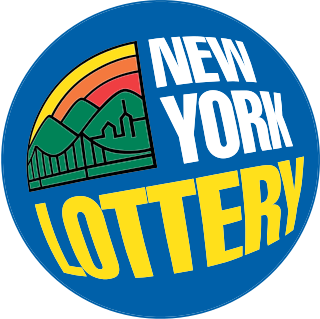
The New York Lottery is the state-operated lottery in the US state of New York that began in 1967. As part of the New York State Gaming Commission, it provides revenue for public education and is based in Schenectady.
The New Mexico Lottery is run by the government of New Mexico. It was established in 1996. It is a member of the Multi-State Lottery Association (MUSL). It offers draw games and scratch off games. As of December 2014, draw games are Powerball, Mega Millions, Monopoly Millionaires' Club, Hot Lotto, Roadrunner Cash, Pick 3, Quicksters, and Lucky Numbers Bingo.

The Connecticut Lottery Corporation, also called the CT Lottery, is the official lottery in Connecticut. It was created in 1971 by then-Gov. Thomas Meskill, who signed Public Act No. 865. The first tickets were sold on February 15, 1972. The Connecticut Lottery offers several in-house drawing games; Connecticut also participates in Mega Millions and Powerball; each are played in 44 states, the District of Columbia, and the U.S. Virgin Islands.
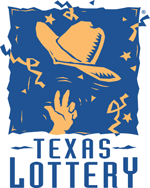
The Texas Lottery is the government-operated lottery available throughout Texas. It is operated by the Texas Lottery Commission, headquartered in downtown Austin, Texas.
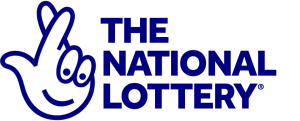
The National Lottery is the state-franchised national lottery established in 1994 in the United Kingdom. It is regulated by the Gambling Commission, and is currently operated by Camelot Group, to which the licence was granted in 1994, 2001 and again in 2007, but will be operated by Allwyn Entertainment Ltd from 2024.

Lotto Max is a Canadian lottery game coordinated by the Interprovincial Lottery Corporation, as one of the country's three national lottery games. Introduced on September 19, 2009, with its first draw occurring on September 25, 2009, the game replaced Lotto Super 7. As of May 2019, Lotto Max drawings are held every Tuesday and Friday.

The National Lottery is the state-licensed lottery of Ireland. Established in 1986 to raise funds for good causes, it began operations on 27 March 1987 when it issued its first scratchcards. It launched the weekly drawing game Lotto the following year, holding the first draw on 16 April 1988. The National Lottery now offers Lotto and Lotto Plus draws on Wednesdays and Saturdays, EuroMillions and Plus draws on Tuesdays and Fridays, and two Daily Million draws each day. Its other games include televised bingo, Millionaire Raffles, and online instant-win games. The minimum age to play all National Lottery games is 18.
A lottery is a form of gambling which involves selling numbered tickets and giving prizes to the holders of numbers drawn at random. Lotteries are outlawed by some governments, while others endorse it to the extent of organizing their own national (state) lottery. It is common to find some degree of regulation by governments, like allowing or prohibiting online sales of tickets.
Daily Grand is a Canadian lottery game coordinated by the Interprovincial Lottery Corporation, as one of the country's three national lottery games, alongside Lotto 6/49 and Lotto Max. Sales began on October 18, 2016, and the first draw was held on October 20, 2016. The game was not launched in Atlantic Canada until 2017.